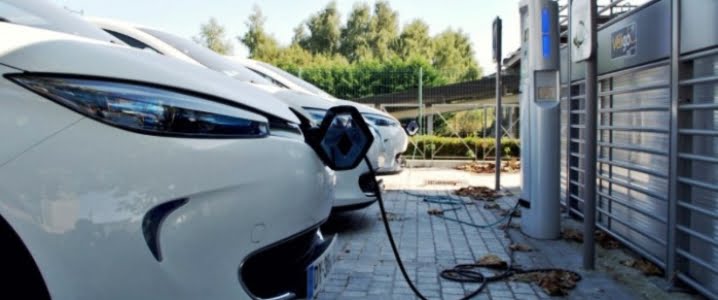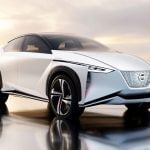
A number of years ago, one of the smartest entrepreneurs in the electric industry (as evidenced by the timing of his sale of generating assets to a big energy producer) bought a hybrid car. He said it was a mobile electric battery and that he’d sell electricity back to the grid from it, sooner or later. That was a while ago. Now every major automotive manufacturer around the world is making a big commitment to electric vehicles (EVs). And yes they are basically mobile batteries.
Renault, which has cross ownership arrangements with Nissan and Mitsubishi, just announced the creation of Renault Energy Services. This new corporate unit is dedicated to a broad array of challenges: the smart grid, charging systems and electric storage.
Because these are automotive companies, the electric vehicle as the center of the operation. But if we learned that an electric utility was exploring these three areas in some integrated way we would certainly not be surprised either.
Nissan officials in the United Kingdom (where incidentally there is little reserve electric generation capacity in the conventional network) claim to have an “intelligent charging strategy”. This facilitates recharging car batteries at off peak periods. The added benefit here is the potential for better utilization of renewable energy sources like wind power, which are often under-utilized during off peak periods.
If large numbers of vehicles eventually do recharge batteries during off peak hours, it implies several changes for the utility industry. First, all those extra vehicles drawing power off peak would boost asset utilization rates substantially–a pretty big positive. However, the same so called intelligent software that directs the battery to recharge during off peak hours, can also be programmed to resell power back to the utility when power prices are high, assuming the vehicle won’t be used.
You can find Leonard Hyman’s lastest book ‘Electricity Acts’ on Amazon
In a sense, all of our driveways and streets could be lined with thousands of what amounts to very small power plants. All with the potential eventually to sell electricity back into the grid. Planning for future electric power generation needs just got a lot more complicated.Related: Can India Overtake China In The EV Revolution?
And we haven’t even begun to discuss what happens when the batteries begin to communicate with each other which is one way to think of a micro-grid.
Renault/Nissan of course say the right things. And they could make smart charging a viable business. But not everyone is that smart.
For example, the city of White Plains, New York now offers its relatively affluent suburban commuters battery charging facilities in the city’s municipal parking lots. Helping commuters with their EVs is fine as public policy, however, the city’s leaders are also inadvertently placing extra demand on Con Ed’s facilities at the height of daily demand. This adds to the utility’s peak load, which in turn requires additional investment to meet the new load, and probably raise prices for all electricity users as well.
Renault’s announcement, whether it becomes a separate big business or not, is one more indicator that the electric utility monopoly, at least with respect to generation and storage, is eroding.
It is possible that the electric utility of the future will become a conduit and central market supervisor for a totally distributed energy system. A certainly vital role, but it’s hard to see where money is made to support such a system.
Interestingly, as propulsion and power generation sectors merge, energy providers (and users) become mobile. One reason that consumers, like homeowners, need the utility and the network is because they can’t move, their demand is fixed. They are as they say, captive customers, and for decades utilities have been keenly aware of this fact.
Related: The Next Big Digital Disruption In Energy
A number of states in the U.S. currently have policies that encourage electric vehicles. Will the present U.S. federal government advocate for a technology that could adversely impact the financial wellbeing of the petroleum industry and reduce the already depleted highway funds that depend on a gas tax? Probably not.
The potential lack of Federal guidance will present a problem. Why? Because transitioning cars and perhaps trucks to electricity could mean an enormous, eventual 30 percent increase in usage of electric power generating and transmission facilities. That type of incremental demand, even for a robust system, at the wrong time of day would force enormous investment to meet demand and raise costs for everyone and leave a lot of electricity consumers wishing for the return of the horse and candles. For all our sakes, it is imperative that EV makers and state policymakers get this right.
[“Source-oilprice”]





